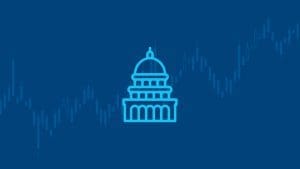The U.S. government closed two investigations into the crypto-based prediction market Polymarket, lifting a major legal cloud over the platform.
The U.S. Department of Justice (DOJ) ended probes into whether Americans were sidestepping a Polymarket ban by using virtual private networks (VPNs), Bloomberg reported Tuesday, citing sources with direct knowledge.
The inquiries began after federal agents raided Polymarket CEO Shayne Coplan‘s New York City apartment in the wake of the 2024 election for evidence that his platform was allowing unauthorized traders. Earlier, in January 2022, the Commodity Futures Trading Commission (CFTC) fined Polymarket $1.4 million for operating an unregistered swaps market and ordered the company to geofence U.S. users—a restriction many traders later evaded with VPNs.
Polymarket isn’t the only prediction market platform platform that has found legal relief from American regulators this week.
PredictIt wins room to grow
Also on Tuesday, PredictIt announced some of the terms it reached in its June 17 settlement with the CFTC: trader caps are gone and individual position limits rise to $3,500, up from $850.
This comes after the CFTC revoked PredictIt’s no-action letter in August 2022. PredictIt and its stakeholders sued the CFTC, alleging the agency had violated the Administrative Procedures Act (APA) by not properly explaining why it was pulling the no-action letter. So began a three-year legal battle to keep PredictIt live.
During that time, PredictIt had to prune markets along the way, including one tracking Ebola cases during the Obama era.
Freed from those constraints, the platform may look to expand its offerings beyond traditional election markets, possibly adding adjacent markets tied to policy-driven events.
What’s next for the industry
These victories for prediction markets land amid Washington’s “crypto week,” a flurry of legislative activity as Congress readies a package of digital-asset bills for President Trump. They include stablecoin legislation and a regulatory framework shaping how the CFTC will regulate cryptocurrencies.
A decision in Kalshi’s challenge to Maryland’s cease-and-desist order is expected within weeks, possibly days. Maryland was not the first or only state to send cease and desists to Kalshi, Crypto.com, and Robinhood over sports event contracts. However, Maryland’s judge asked for supplemental briefing, a step closer to a more nuanced ruling than what we saw in Nevada or New Jersey.
Maryland’s forthcoming ruling will be the bellwether for states worried that Kalshi’s sports contracts might encroach on their betting industries. A Kalshi win would blunt the cease-and-desist strategy, while a loss could spur another round of state letters and further opposition. With a decision expected months before the related Third Circuit case, Maryland is the next legal milestone in Kalshi’s fight to continue to offer sports contracts.
Regardless of what transpires in those court cases, the market is poised for exponential growth that will also mean increased competition for Kalshi.


























